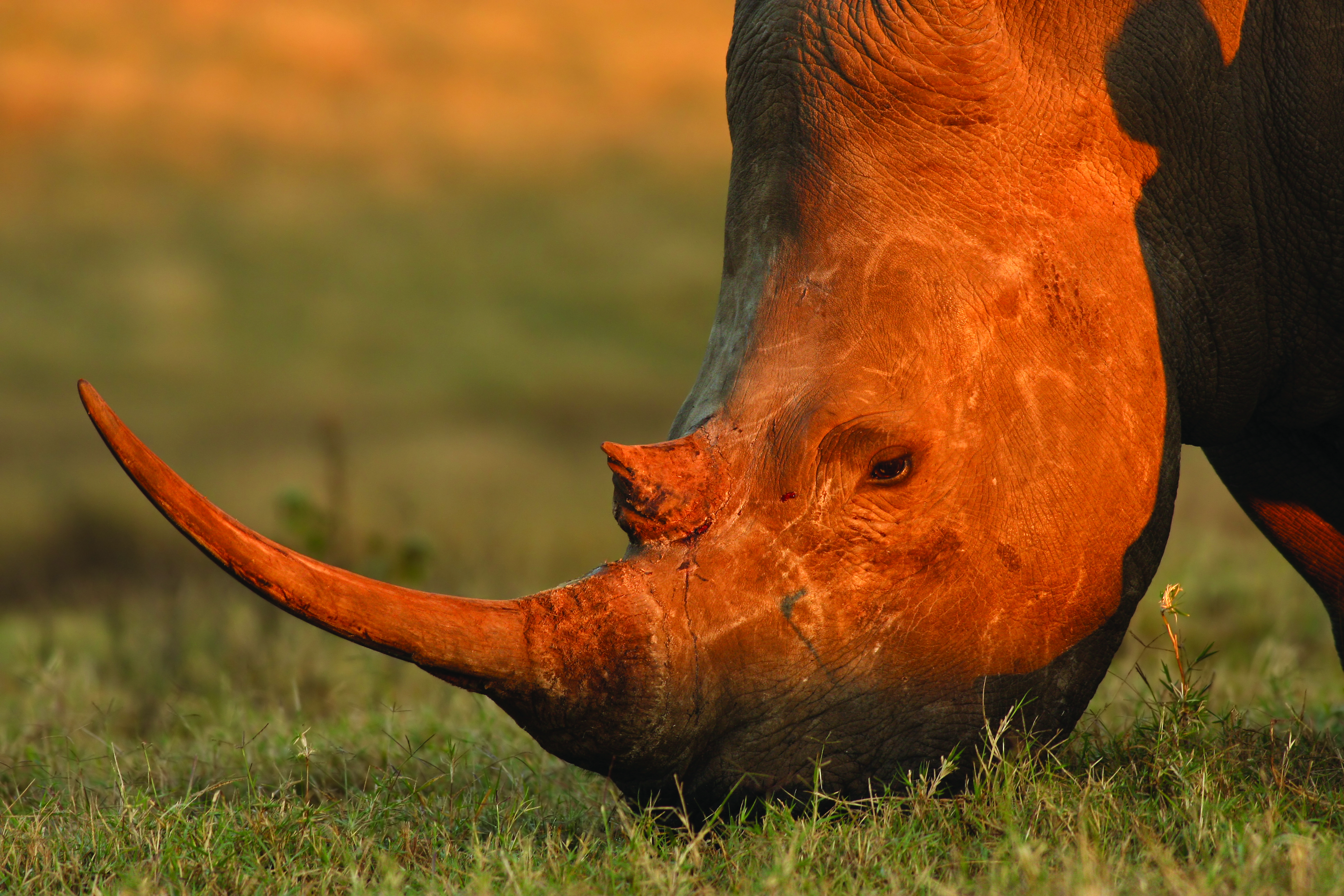Coronavirus and Rhino Horn

Since news broke about the spread of the latest coronavirus, or COVID-19, there has been a great deal of misinformation across the internet. After it was announced that the virus originated at a wildlife trade market, people have increasingly commented on possible links between the coronavirus and rhino horn, despite there being no evidence of this.
The International Rhino Foundation (IRF) and Save the Rhino International (SRI) have developed this statement to provide facts and ask our supporters to support a call for a permanent ban on wildlife trade in China and Vietnam.
What is COVID-19?
COVID-19 is the name of the disease caused by the SARS-CoV-2 virus [1]. It is a member of the coronavirus family that has never been encountered before and, like other coronaviruses, it is a zoonotic disease, meaning that it originated from animals and later passed onto humans. The first cases of COVID-19 were identified in December 2019 in Wuhan, the capital city of China’s Hubei Province.
What was the source of COVID-19?
There has been much speculation on the source of the disease, with articles variously stating that it originated in bats, snakes, and pangolins. On social media the theory of rhino horn as the source for the virus has been widely circulated.
“Rhino horn is made of dead keratin cells, similar to human hair and nails,” said CeCe Sieffert, acting executive director at the International Rhino Foundation. “A virus would not be able to survive in that environment and therefore could not be spread by coming into contact with rhino horn” [2].
As far as we can tell, no one is 100% clear on the source. However, many of those initially infected are known to have either worked or frequently shopped in the Huanan seafood wholesale market in the centre of Wuhan, which also sold live and newly slaughtered animals. Previous coronavirus outbreaks (such as MERS and SARS) originated in bats and infected humans through intermediaries carrying the disease; for example, a bat infects an animal and humans then come into contact with that animal or a product from it.
Why fake news is detrimental for rhinos
In the case of this virus, there have been hundreds of misleading claims and false articles, especially about rhino horn. As well as the misinformation about the horn being the original source of coronavirus, there are reports that those selling rhino horn in China and Laos are now advertising medicines containing rhino horn as a great cure for the disease [3]. There is no scientific evidence that rhino horn has medicinal value in curing viruses or diseases.
As with any news story, it is important that facts are checked and that people understand the reality of the situation in question. IRF and SRI’s conservation efforts are based on sound evidence and the best-available scientific advice. Our organizations do not spread fake news or false information. Not only does presenting the facts maintain our integrity, but it is simply unhelpful to provide incorrect information, which could lead to unintended consequences.
We recognise that scientific reports can be complex, especially where medicine is involved. However, we see this as an opportunity to give all the necessary information in the most digestible ways possible to help everyone understand what is happening, without misconstruing data. When it comes to reducing demand for illegal rhino horn, we know from experience that the best results come from long-term, evidence-based behaviour-change campaigns combined with effective law enforcement.
What can be done to stop fake news?
To stop the spread of misinformation, we encourage all our supporters to share the facts and to consider the news they are reading and sharing online. If we all make sure we are doing our best to fact check, we can stop fake news from circulating and causing any detrimental effects – for people and rhinos.
COVID-19 and wildlife trade
On 26 January 2020, China imposed a temporary ban on all wildlife trade within the country [4] and a report on 13 February stated that the Chinese Government will also be toughening wildlife protection laws [5]. These are two steps in the right direction. We fully support the ban and improvements to law enforcement stopping illegal wildlife trade. We encourage the Chinese authorities to make the ban permanent and to close any loopholes that might still allow trade under certain conditions.
This outbreak reminds us all that wildlife trade is not only driving species towards extinction and damaging our planet, but it is also a serious threat to human health [6]. Eradicating the illegal wildlife trade will be beneficial on many levels and we’ll continue to work towards this through our partnerships aimed at reducing the demand for illegal rhino horn in China and Vietnam, and by protecting rhinos and disrupting illegal trafficking routes in Africa.
We invite you to add your name in support of the call for a permanent ban in China of wildlife trade. Show your support by adding your name and country in the comment section of this post.
[4] http://www.xinhuanet.com/english/2020-02/12/c_138777165.htm
[6] https://news.mongabay.com/2020/10/the-wildlife-trade-threatens-people-and-animals-alike-commentary/

7 thoughts on “Coronavirus and Rhino Horn”
Hello
I support the call for a total ban on the trade in wildlife in China and Vietnam.
Nicky Marlow, Perth Western Australia
Stop trading Rhino Horns
Clem de Marigny
Why not carry on with the rumour that Rhino is part cause of The Corona Virus .
This will put the breaks on Rhino Horn trade ……..
I SUPPORT THE CALL TO BAN ALL TRADING IN WILDLIFE >>>>> WILD LIFE BELONGS IN THE WILD >>>>>>> NOWHERE ELSE
I support that the rhino trade in China and Vietnam should have a complete ban.
Austin Kucharski, East Coast of USA.
I support a total ban on wildlife trade in china.
China and Vietnam have needed to do something about the wildlife trade for a long time now. Now’s as good a time as any.
Holli, Ingham, Queensland Australia.